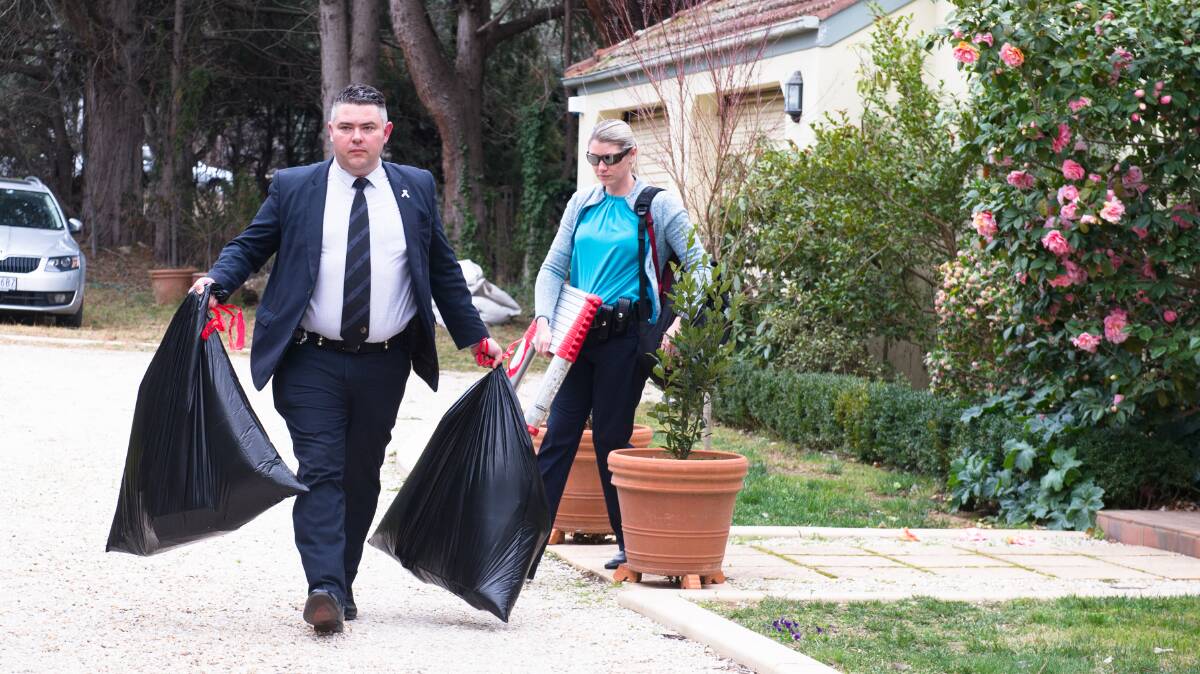The Commonwealth Ombudsman has asked MPs to consider extending the protections that apply to journalists to whistleblowers.
Subscribe now for unlimited access.
or signup to continue reading
It comes as Australian Federal Police remain tight lipped about Wednesday's raid of the Canberra home of a diplomat and defence adviser, amid a wider debate about press freedom.

While parliamentarians and media organisations demand answers about whether the search warrant was linked to twin raids on the ABC and NewsCorp in June, the federal watchdog has urged an overhaul of the public interest disclosure scheme.
The scheme is supposed to allow public servants to raise concerns about wrongdoing within the bureaucracy without fear of reprisal.
But despite the apparent protections, the Ombudsman told a parliamentary inquiry into press freedom it was concerned about a potential loophole where officials may have made an external or emergency disclosure to a journalist or media organisation.
Under public interest disclosure laws, a whistleblower can make an emergency or external disclosure in certain circumstances and be protected under the confidentiality provisions.
Those provisions make it an offence for the public official to disclose "identifying information" about a disclosure to a third person, or being obliged to disclose identifying information to a court or tribunal.
However, journalists and media organisations are not covered by the Public Interest Disclosure Act's confidentiality provisions as they are not public officials.
This becomes a problem if a warrant is issued under telecommunications interception and access laws.
If an agency wants a journalist's telecommunications records to identify a source, it must obtain a 'journalist information warrant' which which requires scrutiny from an external authority or public interest advocate.
No such protection applies if the agency applies for the records of the source themselves.
"This is despite the possibility that agencies have sought access to that telecommunications data for the purposes of confirming whether the person disclosed information to a journalist, and therefore whether they are a journalist's source.
"The committee may wish to consider whether the current drafting of [the telecommunications laws] unintentionally limits the application of journalist information warrant requirements.
"The committee may also wish to consider whether the confidentiality protections of the Public Interest Disclosure Act should extend to situations where a person has made an external or an emergency disclosure to a journalist."
Meanwhile Australian Federal Police refused to comment on Thursday morning on the search warrant they carried out on former defence adviser and Australian Signals Directorate staffer Cameron Gill's Griffith home on Wednesday.
Australia's ambassador to Iraq Dr Joanne Loundes also lives at the property.
It is yet unclear whether the raid was linked to earlier search warrants carried out on the ABC and NewsCorp.
However the NewsCorp raid was sparked by journalist Annika Smethurst's story about expanding the remit of the Australian Signals Directorate to spy on Australians. The agency can only use its powers overseas.
Opposition leader Anthony Albanese said he was "not comfortable" with the government's attitude towards freedom of the press.
"What we have here is circumstances whereby there's been a series of actions which I think put together have undermined the position of freedom of the press and the government needs to be very clear about the role of the press in a modern democracy," Mr Albanese told Sky.
"In the circumstances around the raid on Annika Smethurst for example, where they went through absolutely everything in her home over a long period of time with multiple officers, I think was over the top. I said that at the time. That's still my position."
Mr Albanese also said there needed to be better protection for whistleblowers.
"When whistleblowers give information that the public have a right to know, such as in the case concerned, it was about a debate taking place between government departments about surveillance, increased spying, if you like, on Australians going about their day-to-day business," Mr Albanese said.
"Now, there were privacy concerns with that. Australians had a right to know that that discussion was taking place."
But Prime Minister Scott Morrison said whistleblower protections were adequate.
He also also warned against people speculating on the cause of the raid.
"This is a matter for the Australian Federal Police. I would expect - I am not privy, as you wouldn't expect me to be, for an investigation undertaken by law enforcement authority at a Commonwealth level to be aware of the operational details of that. It would be concerning if I was," Mr Morrison said.
"The details of this investigation would be known to the AFP and to draw links to other things I think is misspeculation."
Home Affairs Minister Peter Dutton denied there had ever been talk of the Australian Signals Directorate spying at home.
"What are you referring to? What does your text from Canberra say? What are they referring to? Ask for background next time. I think you've been set up on that question. There's no such proposal," Mr Dutton told media.
Mr Dutton also said he had not been told of the raids.
"It's an operational matter for the Australian Federal Police and I don't comment on operational matters.
"The AFP execute warrants every day of the week and investigate hundreds of cases, obviously, each year and it's not something I'm involved in as the minister."
And he hit out at those criticising the police over the secrecy of the operation.
"I think people who try to portray the Australian Federal Police other than a professional organisation of men and women led by Andrew Colvin, one of the most successful commissioners of the Australian Federal Police, I think they're wrong and I think they're wrong if they are trying to create an image of anything other than a professional police service," Mr Dutton said.
"They have a job to do under the law and they do it and they should be allowed to conduct their investigations and I don't have any comment to make in relation to this particular matter, as I said before."


